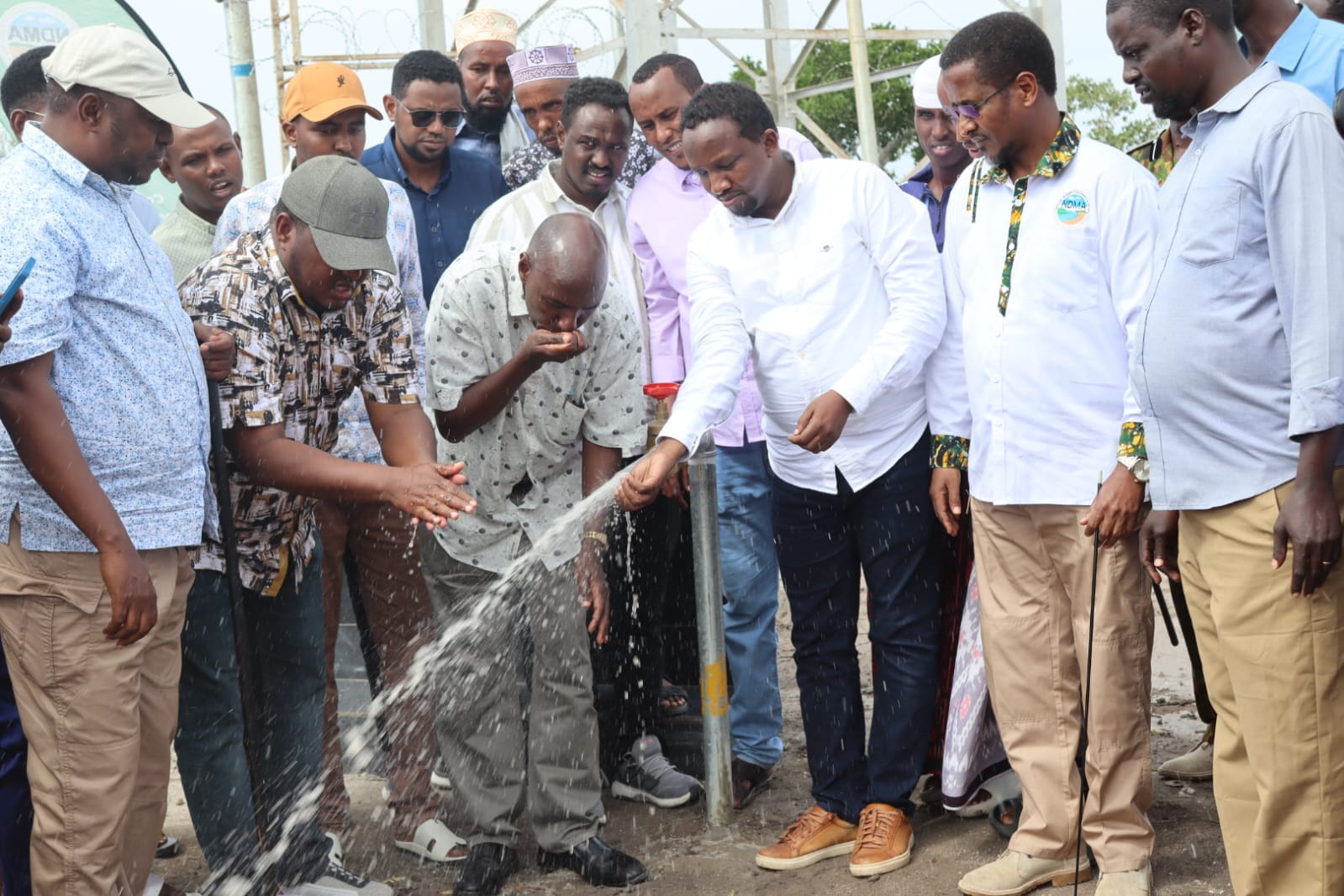Access to water in northern Kenya has been significantly boosted following a Sh20.3 million water project launched in Masalani to serve residents of Bulla Sarman, Bulla Saudi, and Khalkhal Derow in Ijara Constituency on Thursday.
The initiative, supported by the National Drought Management Authority (NDMA) in collaboration with the State Department for Arid and Semi-Arid Lands (ASALs) and Regional Development, features a 4.4-kilometre water pipeline, a 120,000-litre elevated tank, and a fully functional community water kiosk.
The infrastructure is expected to deliver safe, clean, and reliable water to homes, schools, and small businesses in the region.
Principal Secretary Kelo Harsama and NDMA CEO Lt. Col. (Rtd) Hared Hassan Adan joined local leaders and community members to mark the commissioning of the facility.
“Access to clean water is fundamental to health, education, and economic growth,” said Ijara MP Abdi Ali Abdi, who hosted the ceremony.
“This project is a transformative step forward for the people of Ijara, and I am deeply grateful to NDMA for their generosity and timely intervention.”
The project is part of broader efforts to build resilience and improve living conditions in ASAL regions, which are frequently affected by drought and water scarcity. With climate change worsening water insecurity, such targeted investments are becoming increasingly critical.
PS Kelo Harsama said the project has helped ease the burden on women and children who often travel long distances in search of water.
He said it has also stimulated local development by supporting agriculture and small-scale enterprise.
NDMA CEO Lt. Col. (Rtd) Hared Hassan Adan reaffirmed the agency’s commitment to sustainable water solutions, stating, “This project exemplifies how collaboration between national and local stakeholders can yield tangible benefits for marginalized communities.”
